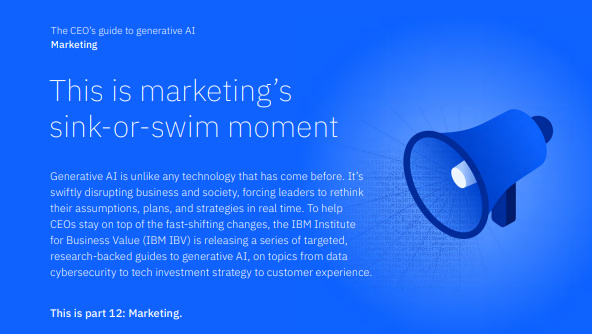Improving software licensing is the key to cracking hyperscaler cloud market dominance
Issues related to cloud software licensing have a negative effect on market competition, but can go unnoticed compared to wider 'monopoly' discussions


The largest cloud service providers have massive sway in the cloud market. Microsoft has made recent headlines about its cloud monopoly, with many seeking to level critiques at the hyperscalers and their stranglehold on cloud infrastructure.

But facing down the looming threat of regulatory clampdowns by the EU and by Ofcom, some sector experts argue regulators would be better off focusing on other issues.
Matthew Sinclair, senior director at the Computer and Communications Industry Association (CCIA), is one such figure. Speaking at a panel discussion on regulation at Cloud Expo London 2024, Sinclair argues that instead of headlines about cloud monopolies, software licensing deserves more attention.
Sinclair acknowledges the cloud sector is an industry fundamentally prone to the sort of anti-competition issues playing out at the moment, but that this doesn’t mean it is the number one concern of customers. “You are not going to end up with 5,000 companies doing what AWS does,” he says, pointing to the scale and complexity of the cloud market.
In reality, Sinclair argues, many customers of the hyperscalers are actually getting an appropriate level of choice, and are selecting their cloud providers on valuable metrics. “If you look at the cloud market, I think there is a lot of encouragement,” Sinclair says.
“Most customers are using multiple cloud providers already, and when they're deciding between cloud providers, they'll tell you they’re choosing based on price, policy of service, security, feature set,” he adds.
Focus on licensing, not cloud dominance
Sinclair argues that if the cloud industry is to change for the better, software licensing needs to be subject to greater scrutiny.
Get the ITPro daily newsletter
Sign up today and you will receive a free copy of our Future Focus 2025 report - the leading guidance on AI, cybersecurity and other IT challenges as per 700+ senior executives
“I think the challenge, though, is you can also see the cloud market isn't an island,” Sinclair says. “[It] depends on interactions with other markets like productivity software, which have not had multiple providers really over a long, long period.”
His reference to the issue of software licensing reiterates a ‘theory of harm’ cited by the CMA as part of its cloud competition inquiries. Cloud Infrastructure Services Providers in Europe (CISPE), which Microsoft recently entered into talks with in an attempt to abate EU scrutiny, has also made referenced the software licensing issue.
In short, the problem of software licensing relates to the heightened price users face if they want to move software such as productivity platforms from one cloud provider to a rival provider. Microsoft has come under particular fire, as it reportedly inflates the price of non-Azure licenses for software like Office 365.
“Effectively what the software licensing practices are doing [is] artificially inflating the cost of rival cloud provider platforms,” Stewart tells ITPro.
Sinclair says that the productivity software market is “broadly acknowledged” to be less competitive and that this prevents enterprise customers from exercising freedom of choice for cloud access.
“It's not a simple thing for enterprise customers to switch productivity software,” Sinclair tells ITPro. He adds that while the health of the cloud sector comes down to a matter of opinion, there are clear issues to fix: “I think if you've got software licensing, creating a kind of hold [up], then that could really increase costs.”
The software licensing question is ultimately where the industry needs to look, Sinclair tells the panel but adds it needs to avoid “big regulatory” interventions that are either premature or so broad that they might curb creativity.
Longstanding issues with cloud competition
If the cloud industry is looking to the big players for constant innovation, Sinclair argues it should avoid invasive policies of regulation. He points to existing customer flexibility when it comes to the parameters by which they choose cloud providers.
Other panelists express differing views on the matter. Nicky Stewart, former head of ICT strategy delivery at the Cabinet Office and former commercial director at UKCloud, says that the cloud market is problematically uncompetitive.
“We need to find a way of getting competition back into this market and getting diversity back into this market,” Stewart says.
RELATED WHITEPAPER

Expanding on this in conversation with ITPro, Stewart highlights the problematic toll a lack of competition could take on the industry at large. “It's just downright dangerous to start coalescing on one or two cloud providers,” Stewart tells ITPro. In a market with few providers, Stewart continues, there is no impetus for innovation and few ways that businesses can determine if they’re getting value for money.
Tension has risen in the cloud sector in 2024, with Microsoft facing anti-competition scrutiny on everything from its cloud platform to its ID management software. In February, a senior executive at Google Cloud accused Microsoft of targeting a cloud monopoly, stating that the firm is creating a walled garden that could trap customers.
Stewart echoes elements of Sinclair’s argument, agreeing there should be an avoidance of “micro-regulating” in the cloud sector, though uses her time on the panel to argue that enhancing competition in the cloud will involve going beyond regulation.
“We need to build choice in … part of that, actually, is even more simple than regulation,” Stewart says. “It's about recognizing that there's a cloud industry that exists beyond the big three,” she adds.
It is clear the cloud market has serious competition issues with which to grapple in the coming months and years. As experts continue to disagree on the extent to which regulators should get involved, the underlying licensing issues may need closer attention than the broader concept of ‘monopolies’.

George Fitzmaurice is a former Staff Writer at ITPro and ChannelPro, with a particular interest in AI regulation, data legislation, and market development. After graduating from the University of Oxford with a degree in English Language and Literature, he undertook an internship at the New Statesman before starting at ITPro. Outside of the office, George is both an aspiring musician and an avid reader.
-
 Cleo attack victim list grows as Hertz confirms customer data stolen
Cleo attack victim list grows as Hertz confirms customer data stolenNews Hertz has confirmed it suffered a data breach as a result of the Cleo zero-day vulnerability in late 2024, with the car rental giant warning that customer data was stolen.
By Ross Kelly
-
 Lateral moves in tech: Why leaders should support employee mobility
Lateral moves in tech: Why leaders should support employee mobilityIn-depth Encouraging staff to switch roles can have long-term benefits for skills in the tech sector
By Keri Allan
